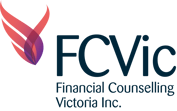My research study
As readers of the Devil’s Advocate will know, credit and bankruptcy laws provide several options for people who are over-indebted. Many people are directly affected by one or more of these options: in 2017/18 there were 16,811 new bankruptcies and 14,834 new debt agreements, and in 2016-17 there were over 300,000 requests made to the banks for financial difficulty assistance (which may include a hardship variation).
We hope that using one of these options will help a person to stabilise their financial situation and reduce the risk of future debt problems. However, we don’t know very much about what happens once one of these options is chosen. For example, in the case of bankruptcy, does a debtor’s financial situation and financial wellbeing improve during the bankruptcy? If so, is that improvement maintained in the short and/or long-term? Or do debt problems recur? What other impacts does bankruptcy have, including on health, relationships, employment or careers, and housing? And to what extent are future outcomes affected by whether or not someone has had access to financial counselling or financial capability training, or has had to make payments from their income?
Without this sort of information, questions about whether the laws are working well, or whether changes are needed, are difficult to answer. A recent example is the discussion about the appropriate length of bankruptcy (with a proposal for automatic discharge after 12 months). Having better information about the impacts of bankruptcy on debtors could usefully inform these and other policy debates.
I’m therefore exploring some of these issues as part of my PhD research at Melbourne Law School. I’m focusing on consumer debt problems, and the impact of resolving those problems through receiving financial difficulty assistance / hardship variations and entering bankruptcy or a debt agreement.
Finding out about debtors’ experiences
To learn more about the impact of financial difficulty assistance, bankruptcy and debt agreements, I’m inviting people who have used one of these options to share their experience through anonymous online surveys. The greater the response to the surveys, the more I can be confident that the range of experiences are represented, and the more useful the data will be for policy-makers and others.
I’m therefore asking financial counsellors, consumer advocates, and other industry practitioners to promote my research to relevant clients or former clients.
If you can help by letting relevant clients (or former clients) know about the opportunity to participate in a survey, please get in touch with me ([email protected] or (07) 3138 2006), and I will provide more information, including a suggested letter for clients. The study design is consistent with privacy and research ethics guidelines, and the study protocol has been approved by Melbourne University’s Human Research Ethics Committee.
Comparing the Australian and Dutch systems
As part of my study, I am also collecting information about outcomes in the Dutch debt relief system. Looking at how another country deals with similar issues can give insights as to how the local responses can be improved, as well as help develop a better understanding of the role of law when people have consumer debt problems. There is a large comparative consumer bankruptcy literature, but most of it compares the systems in continental European countries with the systems in the UK, Ireland and/or North America. Few studies compare Australia’s approach with approaches in other countries.
Why the Netherlands? Because the Dutch system has some features that are not present in the Australian system, but that might be relevant for improving outcomes.
In the Netherlands, there are two main debt relief options for people with consumer debts: a voluntary settlement option, negotiated with creditors and a statutory debt restructuring option (the Wsnp procedure). As in Australia, any debt remaining at the end of the procedure (usually three years) is discharged. However, there are some differences. For example, in both Dutch administrations, debtors have to pay any income earned above a fixed amount to their creditors, and the amount of income that can be kept is low (close to the social minimum). In addition, it is not possible to access the statutory procedure without having first attempted a voluntary settlement, and this must usually be done through a debt counselling agency. Relatedly, it is a legal responsibility of all municipalities (cities) to provide their citizens with access to a minimum amount of debt counselling. Among other things, debt counselling agencies can also ask that people undertake a budget course or similar program before they start to negotiate with creditors on their behalf.
Because of these and other differences, comparing the two jurisdictions will help provide some insights into the features that best help people to recover from consumer debt problems.
More information
I hope that the above has piqued interest in my study. You can read more about it here: https://law.unimelb.edu.au/students/grd/students/nicola-howell, and more about my background here: https://staff.qut.edu.au/staff/nicola.howell.
Please contact me if you have any questions, or if you can help to promote the surveys to potential participants!
Nicola Howell
PhD researcher, Melbourne Law School
Senior Lecturer, Faculty of Law, Queensland University of Technology
